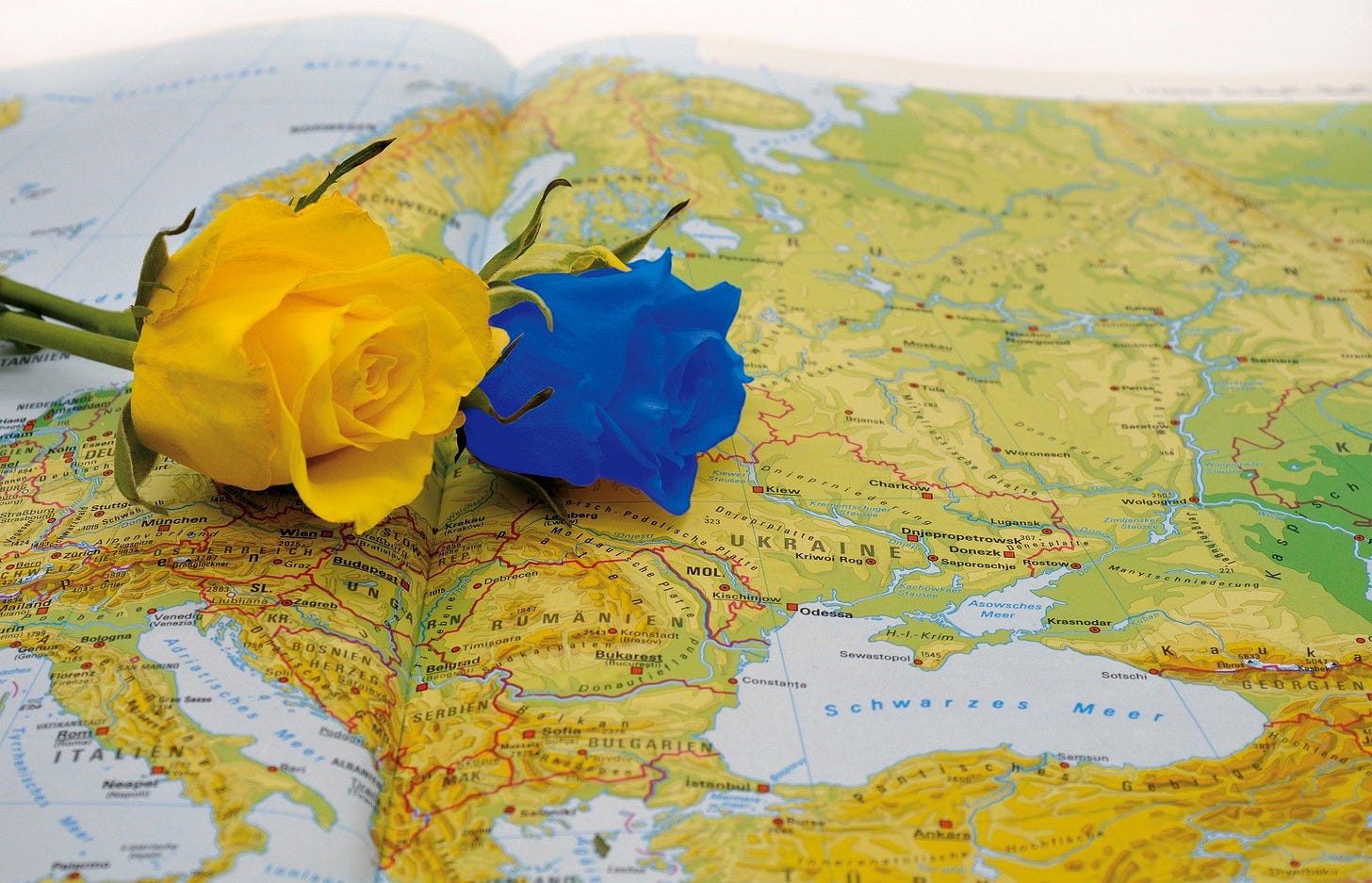IEX 183: War and Pieces
The secondary wars, and the unintended consequences of conflict in a connected world.
This week I met a young colleague after a workshop at office and it was a conversation stopping moment when he said he was from Ukraine. But what he said next changed my perspective: he said his father was Russian and had come across the border to study, and settled in Kharkhev. His Russian grandmother was currently in Kharkhev. It suddenly reminded me that for those on the ground at the border of these warring countries, reality is far more nuanced than the black and white way we tend to see the world.
This war is being fought on multiple fronts and the military one on the ground and in the air, is just one of them. But the financial war being fought may have more far reaching consequences. There have already been a raft of sanctions against Russia. But could the oligarch brigade be Russia's achilles' heel? It turns out that the percentage of GDP contributed by billionaires is higher for Russia (almost 35%) than for many other large countries and as European countries go after the assets owned by the Russian oligarchs, this could be significant. To get a sense of this, consider that the luxury yachts of the top 20 oligarchs cost more than the defence budget of Ukraine. Whatever happens on the ground in Ukraine, Russia's financial and economic future looks bleak as of now. The ripples across all other markets are also severe, with £ 133 billion wiped off the FTSE already. Although the overall market stability has seen worse according to the VIX.
See this picture below from Scott Galloway’s blog
The other battlefront for this war is energy. Much of Europe depends on Russian oil and gas to varying extents and the skyrocketing energy prices will be one of the major outcomes of the war. Shell has landed itself in some hot water by acquiring low-cost Russian oil in the past 24 week. But as the company says, Shell has already taken a hit of over $3bn thanks to pulling out of ventures with Gazprom and the Nord Stream 2 pipeline. It has also committed to donating any profits from the purchase of Russian oil, to a charity for helping Ukraine, and this oil represents a major bulwark against energy shortfall in Europe. But given the long term prognosis, this will undoubtedly spur the investment required to reduce energy dependence given the uncertain future of oil and gas. Much like the pandemic pushed the world into digital work and lifestyles, so too, may this war create the crucible for accelerated energy transition.
Other commodities too will be hit by the war. Egypt as it turns out is most exposed to the shortfall in food and grains especially wheat. And chips and battery supply chains may take a further hit as Ukraine and Russia are among the leading producers of some critical rare minerals.
Pic below: Wheat exports from Ukraine
Lastly, the impact on cryptocurrencies is not to be ignored. On the one hand there will be a flight of bitcoin mining. It was already shut down in China and the war will move more of it from Ukraine and Russia to the US and other parts of the world. But also, many Russian businessmen may look to invest in cryptocurrencies to keep their assets out of reach of American and European governments. There has been a noticeable spike in Rouble-Crypto trades in the past week. And both Russia and Ukraine may use use bitcoin strategically - the former to hedge against sanctions, and the latter to move money in a war zone.
I also expected there to be a much more ferocious information war - with fake news, authentic-looking videos, and much finger pointing. I haven’t see that happen as yet, and I don’t know whether it’s because it’s too early in the stage of conflict, or whether social media platforms have been more vigilant in stopping their spread.
Ultimately, events such as wars of this magnitude are black swan events, with a vast range of externalities and unintended consequences. Its precisely because of these externalities that are perpetually playing out from large and small events that it takes moments to destroy what it takes years to build.
Reading This Week
Smart Cities - an interesting visualisation of city design and orientation of roads - or in other words, to what extent is a city like a grid, versus a maze? (Bloomberg)
Private Equity: The rise and rise of private equity, but can it continue? (Economist)
Nike D2C: Nike has been steadily building its direct to consumer (D2C) business. Nike wants to have 30% of its global revenues come from its own e-Commerce by 2023. (Fabric)
Miro Collaboration: In an ongoing sign that collaboration and ecosystems are on the march, Miro has been valued at $17.5 billion. (TechCrunch)
IoT/ Economy of Things: Vodafone announced its Digital Asset Broker platform at the Mobile World Congress 2022 - aimed at overlaying transaction capabilities with IoT to create an ‘economy of things’. (Vodafone)
See you next week
Ved






